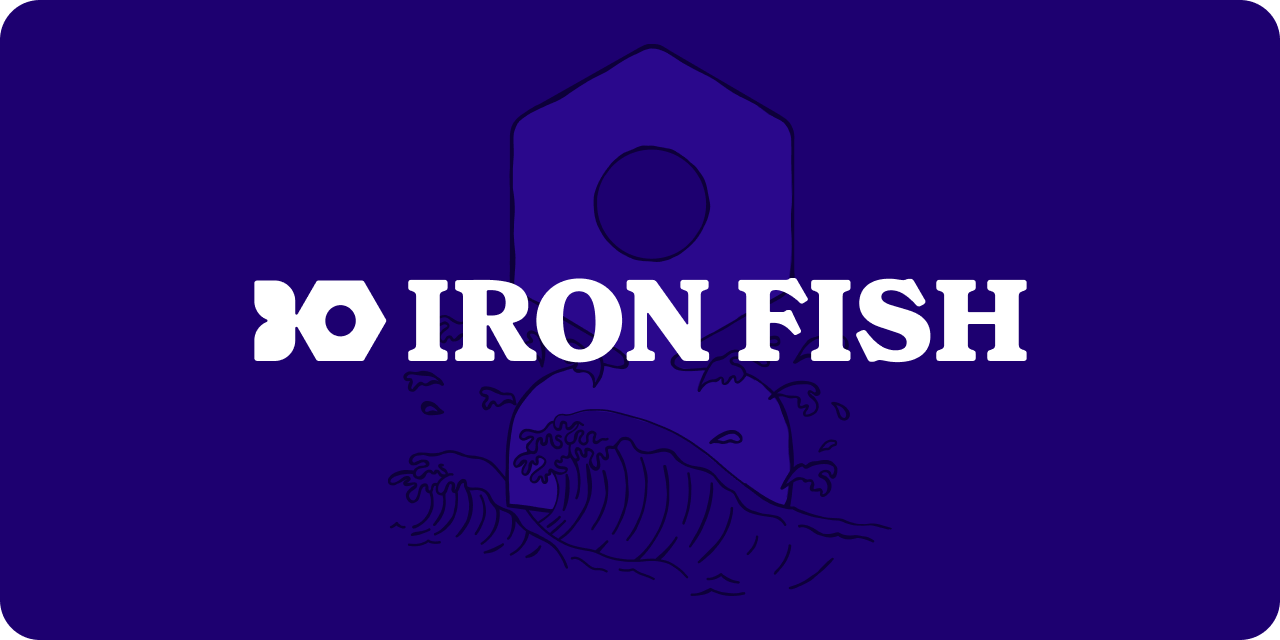Iron Fish is a Layer 1 blockchain that provides the strongest privacy guarantees on every single transaction. Leveraging zero-knowledge proofs (zk-SNARKs), and the highest industry standards for encryption.
See https://ironfish.network
The following steps should only be used to install if you are planning on contributing to the Iron Fish codebase. Otherwise, we strongly recommend using the installation methods here: https://ironfish.network/use/get-started/installation
-
Install Node.js 20 LTS (or greater).
-
Install Rust.
-
Install Yarn.
-
Windows:
- Install the current version of Python from the Microsoft Store package.
- Install Visual C++ Build Environment: Visual Studio Build Tools (using "Visual C++ build tools" or "Desktop development with C++" workload)
If the above steps didn't work for you, please visit Microsoft's Node.js Guidelines for Windows for additional tips.
-
Run
yarn installfrom the root directory to install packages.-
If
yarn installfails with an error that includes "Failed to build cmake", you may need to first install cmake. For example, on macOS:- Run
brew install cmake, you'll need cmake version 3.15 or higher.
- Run
-
If
yarn installfails with an error that includes "Could NOT find OpenSSL", you may need to first install OpenSSL and add an environment variable. For example, on macOS:- Run
brew install openssl - Run
export OPENSSL_ROOT_DIR=`brew --prefix openssl` - Run
yarn installagain.
- Run
-
If
yarn installfails with an error that includes "Error: not found: make", "make: cc: Command not found", or "make: g++: Command not found", you may need to install a C/C++ compiler toolchain.- On Ubuntu:
apt install build-essential - On Amazon Linux:
sudo yum groupinstall "Development Tools"
- On Ubuntu:
-
If
yarn installfails with an error that includes "Error: Could not find any Python installation to use", you may need to install Python3 (required by node-gyp). on macOS:- Run
brew install python
- Run
-
Once your environment is set up - you can run the CLI by following these directions.
Note: Running tests requires Node.js 20 or greater.
- To test the entire monorepo:
- Run
yarn testat the root of the repository - Run
yarn test:slowin ./ironfish/ to run slow tests - Run
yarn test:coverageat the root of the repository for tests and coverage
- Run
- To test a specific project
- Run
yarn testat the root of the project - Run
yarn test:watchin ./ironfish or ./ironfish-cli if you want the tests to run on change - Run
yarn test:coverage:htmlif you want to export the coverage in an easy-to-use format (open the index.html file in the coverage folder of the project)
- Run
- Rust benchmarks:
cargo benchmarkis a cargo alias, defined in./.cargo/config.toml
cargo benchmarkto run all benchmark testscargo benchmark -- simpleto run only benchmarks containing the text 'simple' in the name
- Typescript benchmarks:
cd ironfishyarn test:perf
- ironfish: The library that contains the IronfishSDK and all Ironfish code written in TypeScript.
- ironfish-cli: The main client for Iron Fish as of today. It is a command-line interface built on Node. More details in our documentation.
- ironfish-rust: Core API for interacting with the transactions and chain and using ZKP.
- ironfish-rust-nodejs: Wrapper for
ironfish-rustas a native NodeJS addon.
If you want to contribute code, you must first read our contributing guidelines or risk having your pull request closed.
- iron-fish/homebrew-brew: Contains brew formula for installing via the Brew package manager
- iron-fish/website: The repo that powers ironfish.network
- iron-fish/website-testnet: The repo that powers testnet.ironfish.network
- iron-fish/ironfish-api: The repository that powers most Iron Fish API services.
- iron-fish/chain-explorer: A visual tool to explore the block chain and all of its forks.
The Iron Fish core protocol implementation in this repo went through a security audit by Inversed Tech, finalized on June 1, 2023. The full audit, including a summary of findings, outline of resources, and a detailed breakdown, can be found here. See our blog post on it for more details.
This code base and any contributions will be under the MPL-2.0 Software License.
